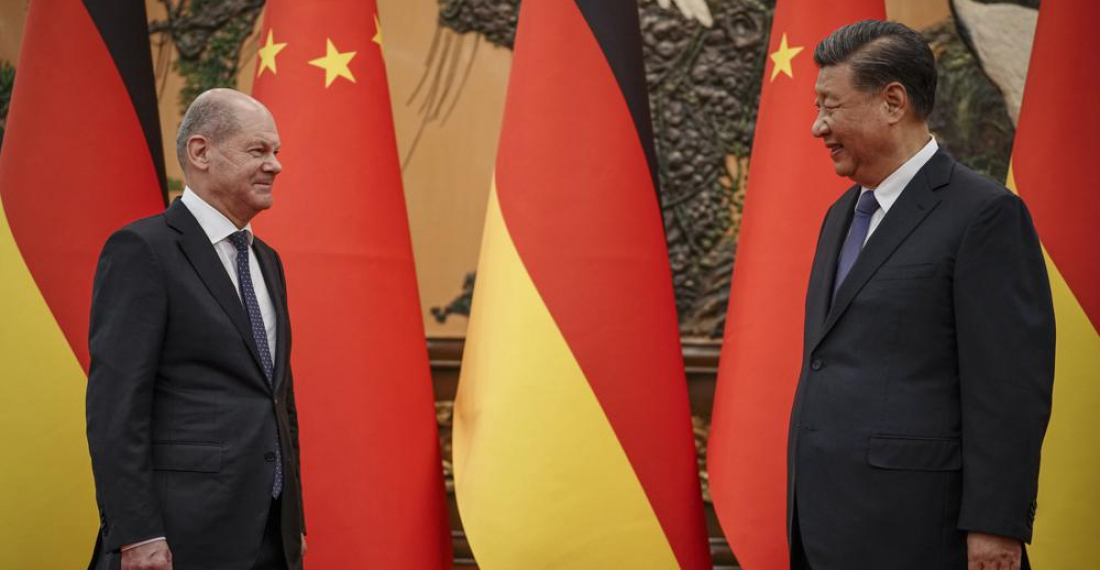German Chancellor Olaf Scholz travelled to Beijing on Friday for a one-day visit, which included a meeting with China's leader President Xi Jinping.
The visit has been criticised in some quarters but has been welcomed by German business leaders, some of who accompanied Scholz on the trip.
Scholz’s visit reflects the importance of Germany’s trade ties with China, the world’s second-largest economy, particularly in the auto and manufacturing sectors. Mercedes Benz alone sold 758,863 cars in China last year, more than in any other country, according to company figures.
The visit is the first by a European leader to China following the Russian invasion of Ukraine in November. China has given diplomatic cover to Russia but has stopped short of actively supporting the Russian invasion.
Scholz received a formal welcome from Xi, who was recently reappointed head of the ruling Communist Party, at the Great Hall of the People in the heart of Beijing.
Xi noted that Scholz’s visit comes as the two countries mark more than 50 years of diplomatic relations dating back to when they relaunched economic exchanges, despite their Cold War rivalry, that remain a key part of the relationship to this day.
“At present, the international situation is complex and changeable,” Xi was quoted as saying by state broadcaster CCTV. “As influential powers, China and Germany should work together in times of change and chaos to make more contributions to world peace and development.”
On Ukraine, Xi “pointed out that China supports Germany and the EU in playing an important role in promoting peace talks and promoting the building of a balanced, effective and sustainable European security framework,” CCTV reported.
The international community should “call on all parties concerned to exercise rationality and restraint, conduct direct contacts as soon as possible, and create conditions for the resumption of negotiations (and) jointly oppose the use or threat of use of nuclear weapons,” Xi said.







